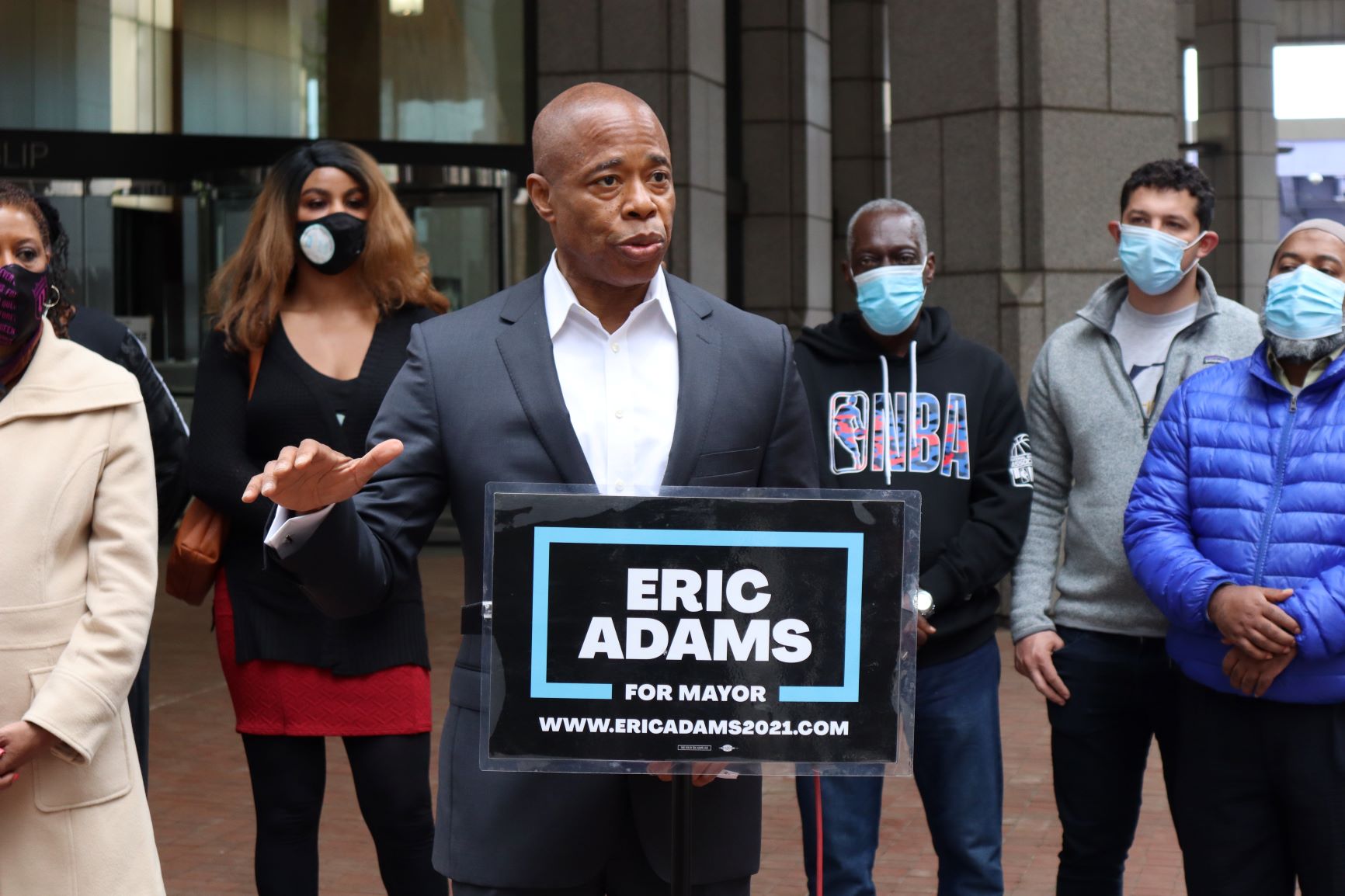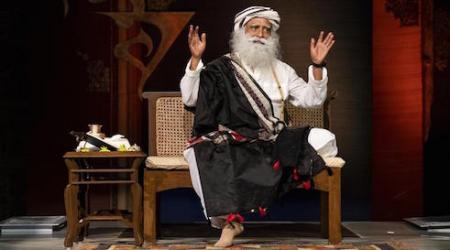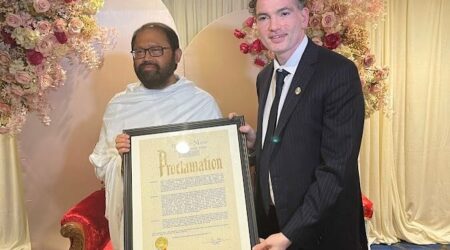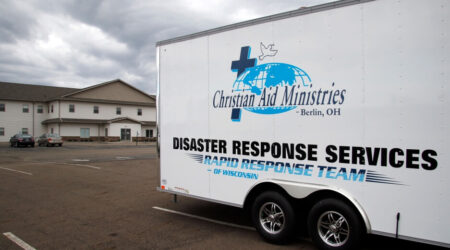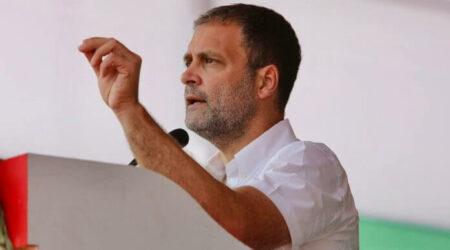Exclusive interview with the frontrunner for NYC Mayor election, who told The South Asian Times, “Public safety is the prerequisite to promote prosperity and turn around the city’s economy”.
By Parveen Chopra
Editor, The South Asian Times
Fellow, CCM NYC Elections Report
The South Asian Times has been privileged to get an exclusive interview with Brooklyn Borough President, Eric Adams, who from all indications has the best chance to win the Democratic primary for NYC Mayor on June 22 and go on to become the 110th Mayor of the ‘Greatest City in the World’, replacing Bill de Blasio on January 1, 2022.
A police officer turned politician who has served in the New York State Senate before getting elected Brooklyn Borough President, Mr Adams has the right credentials and admirable record. Many, particularly South Asians will support his positions — that he shared in this interview — on policing and public safety, turning around the city’s economy and supporting small businesses.
The interview was set up by Jose Bayona, Senior Advisor, Eric Adams for Mayor. Also participating in the interview was Kamlesh Mehta, Publisher of The South Asian Times, who thanked Bayona for doing a wonderful job for ethnic media. Hailing Mr Adams as the most deserving candidate for NYC Mayor, Mehta said, “Sir, we need your blessings for the Diwali holiday for the Hindu and Indian American community in New York. We also need your support for the ethnic media. Creating the Office of Ethnic and Community Media is your initiative. The moment you take the office of Mayor please announce it.”
Excerpts from the interview with Mr Adams conducted last week:
The South Asian Times: The opinion polls put you ahead of your nearest rivals. But your support is still at about 20%. Will Ranked Choice Voting help you across 50% needed to be elected NYC Mayor?
Eric Adams, Candidate for NYC Mayor,: Yes, Ranked Choice Voting (RCV) will help me. I believe I have a cross-section of support not only among the African American community and Spanish speaking community, but also the South Asian community. When you look at groups like Rise Up and other South Asian organizations, there is a great deal of support on my behalf, and that is where RCV is going to benefit me. And people have known me for years on how I have been in all of these communities. I have an amazing record of being part of the communities in this city. If you look at other candidates, they don’t have the record. So, I believe when it is time to vote, it is not only the No 1 choice, I’m going to pick up votes for 2 and 3 also.
TSAT: So how confident are you – on a scale of 1 to 10 — that you will be the next Mayor of New York City?
Eric Adams: I am at a 10 because my confidence comes from the real connectivity and love I have for New Yorkers all over the city. It is not just what I feel about myself, but what I believe New Yorkers feel about me. I protected and served the city as a police officer. I’ve done a great job as state senator and Brooklyn Borough President and I know that we can run a better city.
TSAT: In our interviews with South Asian community leaders that we have published in last week’s issue, they put the economic recovery of the city as Task No 1 for the next mayor. What is your plan to ensure that?
Eric Adams: It is a combination, and the foundation of all the things that we believe are important. The South Asian community may believe that the important thing is economic recovery, another community may believe something else. But all of these things we believe are important rest on one thing and that is public safety. If we want to turn around our economy, then first we have to be a safe city. If we want people not to get intimidated by gun violence, then it has to be a safe city. So, at the foundation of turning around the economy is safety. Two, we must get Covid-19 under control. And that includes everything from reaching herd immunity, a good vaccination policy and coming up with a group of clear guidelines of how to ensure that we don’t have another outbreak of this pandemic. Third, we have to give our small businesses support because 51% of the employees in this city come from small businesses. That includes making sure we have a banking network for access to capital, and includes allowing our Chamber of Commerce to do back room work for small businesses, so they don’t have to pay additional employees to do administrative work and compliance work. Promoting small businesses includes doing things differently like tax free Tuesdays to encourage people to go into our small businesses instead of going online, and purchasing items right in our small businesses every day.
Lastly, our procurement dollars. We spend somewhere around 22.5 billion dollars every year on procurement of goods and services. We don’t need to buy those goods and services outside the city and state. We should do those goods and services purchases right here in the city of New York to boost our small businesses.
TSAT: Indian Americans and South Asians worry about the safety and security of their families and homes. How will you harness your police officer background to make the city safe?
Eric Adams: We can achieve that by rebuilding trust; we must rebuild trust between the police and community and we can do it on many levels. I like to say that we have to change the ecosystem of public safety. That includes recruiting in our police departments. I’m so proud of my record of encouraging South Asian men and women to join the police department. We have the largest levels of new recruits in the police department – many of those young men and women are from Bangladesh, India and other communities. Second, we need to have police officers who do jobs that deal with public safety and violent crimes and wean them off those jobs that we can have civilians do. So, we can build a better resource or better response from our policing. I want my police officers to focus on violent crime. I don’t want them focusing on parades, which civilians can do, or responding to past vehicle accidents, which we can get civilians to do. Thus, there are so many things which we can do differently with the police department to make it more productive and keep our city safe.
TSAT: Indian Americans are traditionally Democrat and they support racial equality, but they feel that your party, the Democratic party, is going too much toward the left. And there are the progressives who think that you’re not progressive enough. So how do you strike the right balance?
Eric Adams: I believe we need to reclaim the word ‘progressive’ because people don’t really understand what being progressive is. Being progressive means making sure that communities are safe, so we could open businesses and ensure that people are hired. Being progressive is not just talking about prison and bail reform, but it is creating a climate that prevents people from carrying out crimes. Like doing dyslexia screening in every school so 30% of our prison population won’t be dyslexic. It is about ensuring family members who have learning disabilities are receiving the support that they need, so 55% of inmates at Rikers Island (jail) don’t have learning disabilities.
Yes, I am a progressive, but I am a pragmatic progressive who understands that being progressive is not based on bumper stickers and slogans, it is based on real policies that end inequality in the city.
TSAT: Which of your positions set you apart from other Democratic candidates in this primary?
Eric Adams: There are a number of positions. Number one, I am the only candidate in the race who has been talking about how we really deal with crime in this city. Other candidates have remained mostly silent on that. And as I stated, public safety is the prerequisite to promote prosperity. I like to say straight up how we prevent inequalities in the city, such as better schools and better healthcare for all and better employment for small businesses. And I’m a big believer in technology. Many of these other candidates are not engaging in a real conversation on how we use technology to run our city in real time. I am going to build out a single platform in our city where anyone who is in need of services that they are eligible for, they won’t have to sign up for those services, we will automatically sign them up and give them the services they need. If your food is secure. you should be able to sign up automatically for a snack in the food stamp program. If you are a senior and you need your rent freeze and you are eligible, you should be able to sign up for that program cost free. Same thing if you are disabled, there is a program you can avail. Many people don’t sign up for these programs because they are too complicated. As Mayor, I’m going to use technology to use information we have on our citizens and we will automatically sign them up and give them the resources they need. And add this to my people’s plan that will use the earned income tax program that can put anywhere from 250 to 300 dollars in the pockets of New Yokers every month, increased Metro card programs, as well as my program that will call for universal daycare, which is crucial for working parents particularly in the South Asian community. So, there is a clear direction that I am showing on how to turn around New York City.
TSAT: How have you made an outreach to the sizable South Asian/Indian American community in NYC, particularly in Queens?
Eric Adams: When it comes to the South Asian community, there is no candidate in this race who has more outreach synergy than me. That outreach did not start when I decided to run for Mayor. That outreach was there for many years. I have been in the forefront of pushing for the Diwali holiday in NYC schools. I am supported by the first South Asian elected state Senator, Jenifer Rajkumar. Dilip Chauhan and some other South Asians are part of my staff and my team. When you look at organizations like Rise Up (that invests in leaders to improve the lives of girls and women in India and other countries) they have joined my campaign, and they have been extremely supportive. So, I know the South Asian community and the South Asian community knows me. I have been in their temples and in all the different locations, and mosques. Wherever you are, I have been there and that relationship will continue to be an amazing relationship through the years. I am not a new friend, I am an old friend and we are going to continue to expand on that friendship.
As Mayor, Adams to create Office of Ethnic and Community Media

The frontrunner for NYC mayor, Eric Adams announced his plan in early May to create the Mayor’s Office of Ethnic and Community Media, along with providing paid advertising campaigns to local ethnic media. The office will expand the Cityʼs commitment to ethnically diverse communities.
“Our city is the most diverse city in America and that diversity is represented well in our ethnic and community media outlets throughout the five boroughs,” said Adams. “I appreciate the critical role these outlets play in empowering our communities, and I am committed to expanding the resources they need to continue bringing vital information to New Yorkers.”
The plan would expand Executive Order 47 signed by Mayor Bill de Blasio in 2019. The order mandated that all city agencies spend at least 50% of their annual print and digital publication advertising in local community media outlets.
The Mayorʼs Office of Ethnic and Community Media will ensure the inclusion of NYC’s ethnic TV and radio outlets with no more than five
staff members in the scope and benefits of EO47.
A Community and Ethnic Media Marketing Executive Director position will be created and tasked with upholding a unified message of the City’s services, distribution of paid advertisements and campaigns to community media.
The legislation has been introduced in the City Council sponsored by Adams, Speaker Corey Johnson and Councilmember Ydanis Rodriguez. The approval vote on the legislation is expected soon.
Endorsements Galore

Indian American Assemblywoman Jenifer Rajkumar supports Eric Adams for Mayor.
Eric Adams has been piling up endorsements faster than you can count them. As of May 26, two Congressmen from New York, Tom Suozzi and Adriano Espaillat, several New York State legislators, local officials and labor unions have endorsed him for city Mayor.
New York State Assemblywoman Jenifer Rajkumar, an Indian American, said, “New Yorkers who are overlooked and underserved need Eric in City Hall — someone who will always stand up for them… as a civil rights leader, legislator, borough president and powerful advocate for the ignored and underserved”.
Mr Adams thanked her: “As the State’s first South Asian woman elected to State office and a champion for immigrants and civil rights, Assemblywoman Jenifer Rajkumar is an inspiring public servant, and I am so grateful to have earned her support!”
The People’s Candidate

As an African American teenager, Eric Adams was a victim of violence at the hands of police. But instead of giving into anger, he turned his pain into purpose and decided to change the police department from within. He joined the NYPD and became one of its most outspoken officers, calling out racism and bias in the department and pushing for major reforms. He rose to the rank of captain, helping to build the first computerized system for tracking crime in the city, which led to historic gains in public safety.
Adams’ efforts to change policing began his lifelong work to improve and protect New York. From the NYPD, he moved on to the State Senate, where he represented sections of central and Brownstone Brooklyn. In Albany, he built winning coalitions to advance New York City’s values and goals, helping to push through measures to protect tenants and workers, combat gun violence, end the NYPD’s abuses of stop and frisk, and advance human rights — including marriage equality. He also became the first person of color to chair NYS Senate’s Homeland Security Committee.
Adams was elected Brooklyn Borough President in 2013 by putting together a diverse coalition to become the borough’s first Black leader. As the representative of one of the nation’s largest counties, Adams fought tirelessly to grow the local economy, invest in schools, reduce inequality, improve public safety, and advocate for smart policies and better government that delivers for all New Yorkers. When the COVID-19 pandemic struck the city, he moved a mattress into his office and worked around the clock to deliver donated meals and PPE to essential workers and vulnerable New Yorkers, demanding the government produce more equitable relief.
Adams is a lifelong New Yorker. He currently lives in Bedford-Stuyvesant.
He received his master’s degree in public administration from Marist College, and is a graduate of New York City Technical College and the John Jay College of Criminal Justice.
He announced his run for NYC Mayor in November last year.


